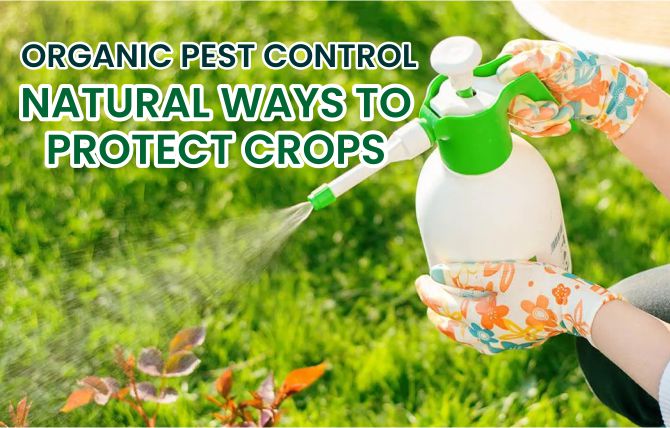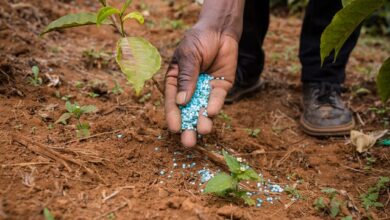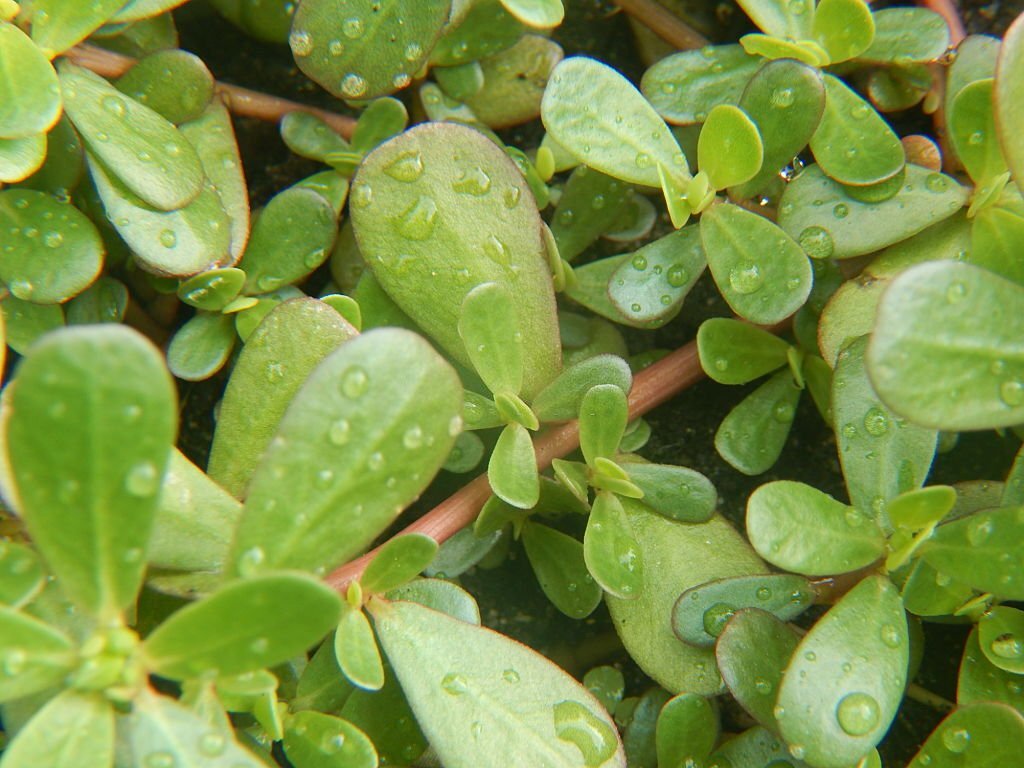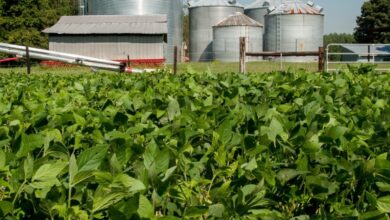Organic Pest Control: Natural Ways to Protect Crops

Modern agriculture has to cope with feeding the world while trying to minimize its impact on the environment. Pest control is a key element of sustainable farming. Otherwise, pests such as these will slash crop yields. Like a breath of fresh air, organic pest control provides a natural way to ward crop-damaging creatures off except in this case without recourse to toxic chemicals or poisons. This article offers organic solutions for controlling pests, thus enabling crops to enjoy a better life while doing less harm to the environment.
How Organic Pest Control Promotes Sustainable Agriculture
If measures are not properly taken, crops, orchards, and fields can bear witness to the devastation wrought by pests that include insects, rodents, and fungi. While modern chemical pesticides provide fast results, they often injure friendly organisms, harm soil health, and pose risks to the health of people and livestock. Organic pest control, by contrast, advocates natural ways of maintaining ecological justice as well as regulating nature. This way farmers who produce certified commodities in line with national standards are assured of a market, and generally higher prices are paid too.
Only modern tools like a tractor equipped with precision sprays can be used for even distribution of organic pest controls now. This way efficient application is guaranteed, waste reduced and harmful effects minimized. So it is an indispensable tool for sustainable farming.
Effective Organic Pest Control
Companion planting
It means growing plants that will repel pests from their neighbors or attract beneficial insects. For example, marigolds ward off nematodes and aphids; Basil keeps mosquitoes and flies away. Through this simple but effective means of organization, vegetables can be mutually beneficial.
Biological control
Biological control introduces natural predators, parasites, and pathogens to control pest populations. Ladybugs, for example, are great for killing aphids; Parasitic wasps take good aim at caterpillar outbreaks. By encouraging the presence of such beneficial organisms, you can get up to a whopping 60% reduction in damage caused by pests.
Neem oil applications
Neem oil, derived from the seeds of the neem tree, is a natural insecticide that interferes with the life cycles of many pests. Being biodegradable and safe for humans makes Neem oil a popular choice for organic farmers.
Crop rotation
rotating crops can prevent the establishment of pests in a particular area. Some pests are host-specific and become a problem if they move into a continuous culture of the same crop. Changing the type of crops interrupts their life cycles and lowers risks for infestation.
Traps and barriers
Physical traps such as sticky traps or pheromone lures can catch pests like autograph flies and cutworm moths. Barriers–such as fine mesh netting and rodent fencing will protect crops from being damaged by larger pests like birds or rodents. These methods are simple and effective for small-scale farms.
Beneficial microorganisms
Injecting beneficial fungi and bacteria into the soil will destroy harmful pests. For example, Bacillus thuringiensis (Bt), a natural bacterium, produces proteins that are toxic to some insect larvae yet do not harm humans or animals. This is one way of controlling pests and is now being tried as a method for the grapes in particular.
Soil health management
Healthy soil can naturally suppress pest populations. Adding organic matter such as compost or manure increases soil fertility and encourages beneficial organisms to deter pests. Sustaining the health of the soil is a very basic step in organic pest control.
Handpicking
For small-scale farms or gardens, manually gathering pests by hand might be an effective way. Although it is an intensive labor practice, this method provides outstanding results against pests with conspicuous body plan features -e.g. Caterpillars and Beetles. Regular monitoring is critical to the timely removal of problems.
The Advantages of Organic Pest Control
- Environmentally Friendly: Chemical runoff is reduced, and the natural habitat is preserved.
- Healthier Crops: Pesticide residues are minimized, which results in food that is safer to eat.
- Biodiversity: Encourages balance in the ecosystem by supporting beneficial organisms.
- Cost-Effective: Many organic pest control methods such as crop rotation and handpicking are low-cost solutions.
The Challenge of Organic Insect Control
It also requires patience, knowledge, and steadfast effort. Many natural remedies take longer to entire manifestation than chemical insecticides do.
However, as everywhere else, insects are ignored and over time become an ever-shifting enemy of climate change. That means that one form of deathly enemy may be removed to make room for a different “tough hand” insect disease.
The Future of Organic Pest Control
With technological advances, organic insect eradication is becoming more precise and accessible. For instance, precision agriculture tools such as unmanned aerial vehicles equipped with GNSS receivers, and tractors loaded up with organic solutions go a long way towards providing dropping from the air. Furthermore, continuous studies on plant-based insecticides and environmental factors beneficial for plant pests continue to mushroom the methods available to us.
Conclusion
Organic pest control is an indispensable part of the sustainable agriculture movement, offering only natural substitutes for synthetic chemical controls. By utilizing methods such as mixed planting, biological control, soil fertility, etc., farmers can effectively control cud-givers without having to resort to harmful chemicals.
Using today’s modern tools and organic farming practices together further improves the efficiency of pest control. The shift to organic insect control ensures not only healthier crops but also a better environment for our children.





